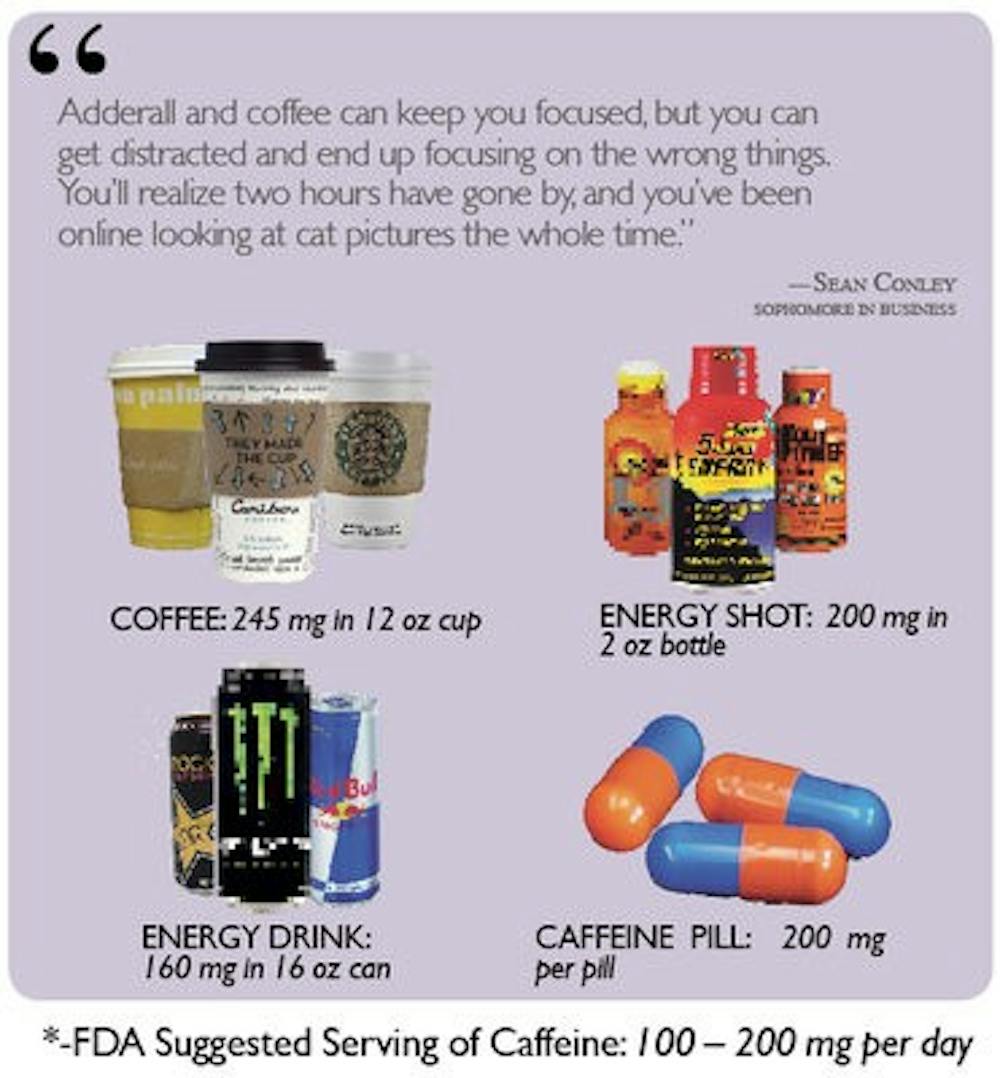The time to climb that mountain known as midterms is fasting approaching, ready or not.
Those days and nights of immersive studying might seem like the only way out, but a foolproof, all-nighter routine might be doing more harm than good.
"In my entire academic career, I pulled an all-nighter one time," said Dr. Fred Kam, director of the Auburn University medical center.
"I had a gross anatomy exam on a Thursday and a biochemistry exam on a Friday, and, to be candidly honest, I never did it again," Kam said. "I performed poorly on that biochemistry exam, even though I stayed up all night, and when the exam came, I couldn't think clear. I knew the information, but I couldn't analyze it. So, I never did it again."
Caffeine, study medication and other tried-and-true methods of pulling an all-nighter might be effective in keeping students awake, but missing out on sleep can either undo or waste the time spent studying.
"Adderall and coffee can keep you focused, but you can get distracted and end up focusing on the wrong things," said Sean Conley, sophomore in business. "You'll realize two hours have gone by, and you've been online looking at cat pictures the whole time."
Conley said despite being prescribed the study medication Adderall, he sometimes skips taking them in order to get the sleep they would otherwise prevent.
According to Kam, sleep deprivation, stress and lack of focus are all side effects from intense caffeine doses during extended studying sessions.
They can hinder, if not completely derail, your efforts to master the material.
"Pulling an all-nighter was miserable," said John Lee, senior in applied mathematics. "Definitely hard to focus. I don't want to say I was hallucinating or anything but I would see shadows and stuff out of the corners of my eyes and it made me do a double take. That's why I try to get sleep."
Sleep doesn't just refresh the body for the road ahead.
Memorization and information-mapping both occur once you go to sleep, so knowing when to start and when to call it a night could be the difference in learning the material or wasting your time.
"Bottom line, learning material is only helpful if you sleep," Kam said.
Training the body to comfortably accept the information being force-fed to the brain is only half of the process.
In order for studying to be effective, stimulating the brain is a necessity, said Annie Callender, professor of psychology.
"One thing that is not useful is just re-reading your text or re-reading your notes," Callender said. "When you're re-reading something, you don't generally do anything new with the information the second time you go through it or the third, fourth time."
Testing the brain through memorization games and repetition or explaining the material can be extremely useful in retaining the information not only for the upcoming exam, but also for tests later in the semester.
"There's a method called self explanation when you're reading where, as you're reading the text, explain to yourself what it means," Callender said. "That actually increases memory of the text a lot as opposed to re-reading it."
Keeping the mind healthy and stimulated can make it easier to study; procrastinating will not.
According to Randy Beard, professor of economics, one of the ancient principle of economics states that doing something slow and steadily is always more efficient than to do it quickly and all at once.
"People [procrastinate], and they think it's cheaper because they're only studying for a couple of days, but they're studying full-time in misery," Beard said.
"Studying for 20 minutes a day, for a couple of weeks, in time that you'd otherwise spend staring out the window, lo and behold, you do as well if not better. [With] binge-studying, you're paying a higher price for your grade than you have to."
For some, however, despite all the advice staying up late is the only way that works.
"I'll be honest with you, I've pulled an all-nighter for probably about 75 percent of all tests I've had in college, if not just staying up really late beforehand," Conley said. "I'm in my fourth semester now and I've only gotten less than an A on three tests since I've been in college. It works for me."
Do you like this story? The Plainsman doesn't accept money from tuition or student fees, and we don't charge a subscription fee. But you can donate to support The Plainsman.





